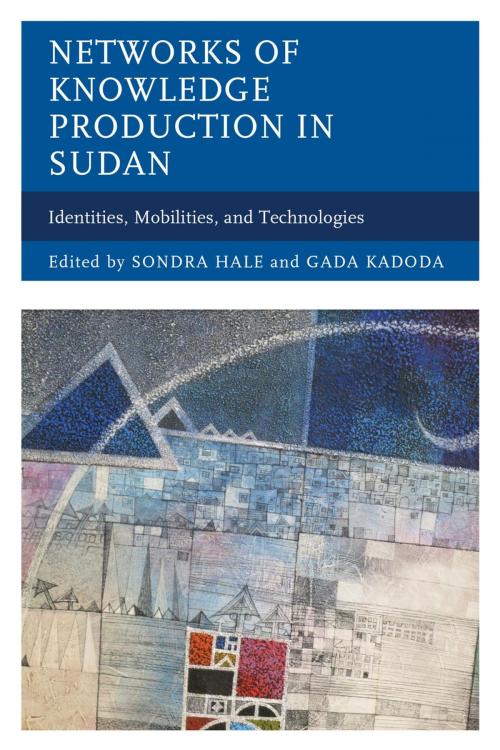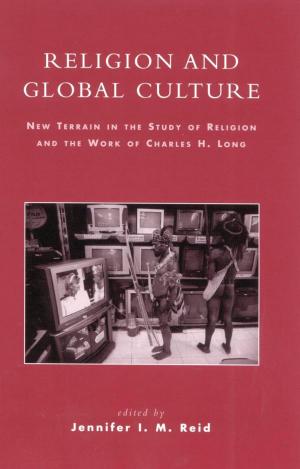Networks of Knowledge Production in Sudan
Identities, Mobilities, and Technologies
Nonfiction, Social & Cultural Studies, Social Science, Anthropology, Political Science, International, Gender Studies| Author: | Rogaia Mustafa Abusharaf, Alsarah, Janice Boddy, Sandra Calkins, Atta El-Battahani, Asha Elkarib, Asma I. Elsony, Anita Fabos, Nancy Gallagher, Katarzyna Grabska, Ellen Gruenbaum, Sondra Hale, Asma M. Abdel Halim, Sara A. Hassanain, Gada Kadoda, Guma K. Komey, Amina Alrasheed Nayel, Margret Otto, Richard Rottenburg, Ulrike Schultz, Pindai Sithole | ISBN: | 9781498532136 |
| Publisher: | Lexington Books | Publication: | September 14, 2016 |
| Imprint: | Lexington Books | Language: | English |
| Author: | Rogaia Mustafa Abusharaf, Alsarah, Janice Boddy, Sandra Calkins, Atta El-Battahani, Asha Elkarib, Asma I. Elsony, Anita Fabos, Nancy Gallagher, Katarzyna Grabska, Ellen Gruenbaum, Sondra Hale, Asma M. Abdel Halim, Sara A. Hassanain, Gada Kadoda, Guma K. Komey, Amina Alrasheed Nayel, Margret Otto, Richard Rottenburg, Ulrike Schultz, Pindai Sithole |
| ISBN: | 9781498532136 |
| Publisher: | Lexington Books |
| Publication: | September 14, 2016 |
| Imprint: | Lexington Books |
| Language: | English |
This is the first book of its kind on Sudan, and arguably one of the first in North Africa. We are part of an emerging, more cosmopolitan approach that calls for a reassessment of ideas about not only the concept of identities**,** but also about migration and technology, especially social media. Our essayists engage in redefinitions, the broadening of our key variables, the linking and intersecting of concepts, and the investigations of methods and ethics, and opt for an approach that is, at once, culturally specific to Sudan (one of the most fluid social landscapes in the world) and transnational. Our essays address the narrowness of studies of migration and note the almost total neglect in the broader Sudan literature of the rise of technology—mobile telephony and social media, in particular.
Furthermore, our essayists address the near neglect in the Sudan literature of certain categories of people, such as youth, or certain diverse spaces, such as neighborhoods or gold mines. We have also been attempting to move away from the nearly stereotypic descriptions of Sudan to deal with topics that align Sudan with transnational issues and themes, knowledge production among them. This multidisciplinary collection of essays is the first comprehensive work to grapple explicitly with the question of knowledge production in such a diverse social landscape. We discuss the impact of current trends in information technology and contemporary forms of identity and mobility on knowledge production. These issues are pertinent for different sectors such as academia, government or business, and, as we demonstrate, reveal a myriad of possibilities for studying diverse population groups like youth, women, diaspora, or specific political contexts such as conflict or oppression.
This is the first book of its kind on Sudan, and arguably one of the first in North Africa. We are part of an emerging, more cosmopolitan approach that calls for a reassessment of ideas about not only the concept of identities**,** but also about migration and technology, especially social media. Our essayists engage in redefinitions, the broadening of our key variables, the linking and intersecting of concepts, and the investigations of methods and ethics, and opt for an approach that is, at once, culturally specific to Sudan (one of the most fluid social landscapes in the world) and transnational. Our essays address the narrowness of studies of migration and note the almost total neglect in the broader Sudan literature of the rise of technology—mobile telephony and social media, in particular.
Furthermore, our essayists address the near neglect in the Sudan literature of certain categories of people, such as youth, or certain diverse spaces, such as neighborhoods or gold mines. We have also been attempting to move away from the nearly stereotypic descriptions of Sudan to deal with topics that align Sudan with transnational issues and themes, knowledge production among them. This multidisciplinary collection of essays is the first comprehensive work to grapple explicitly with the question of knowledge production in such a diverse social landscape. We discuss the impact of current trends in information technology and contemporary forms of identity and mobility on knowledge production. These issues are pertinent for different sectors such as academia, government or business, and, as we demonstrate, reveal a myriad of possibilities for studying diverse population groups like youth, women, diaspora, or specific political contexts such as conflict or oppression.















